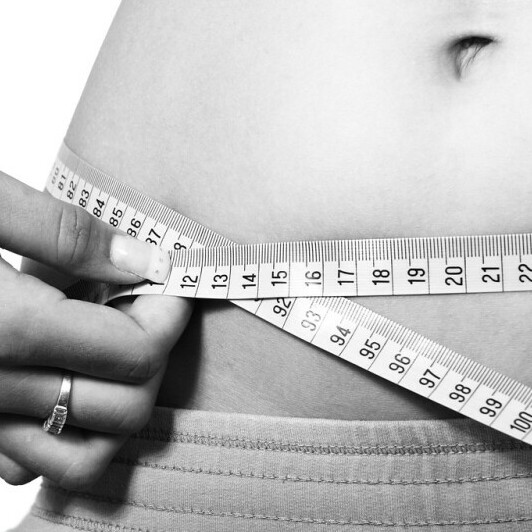
Why is my diet not working? Why Am I Not Seeing Results From My Diet? Diet Exercise Healthy Eating are all Good but if you are Eating Less and not Losing Weight Read On.
Unlock the Secrets: as to why your diet might be stalling and unlock the truth behind diet failures and weight loss struggles.
Have you started on the Rollercoaster of a weight loss journey. I know the feeling. There are initial quick wins where you think you’ve cracked it and all is rosy in the camp. Then these euphoric feelings are often followed by frustrating plateaus. You find your diet stalling and the scales refusing to budge. You may start asking the question what are the reasons my diet fails. This may come at the end of the second or third week and you may even consider giving up or reverting into bad habits. Well, you’re not alone. Understanding why this happens is crucial to overcoming these obstacles and achieving your long-term weight loss goals.
The Initial Quick Wins
In your early days of your diet, you may have experienced a rapid weight loss. This is normal and often due to a reduction in water weight and a decrease in glycogen stores. My article on ‘How to lose 10kg in a month’ points to a calorie deficient plan, and as your body adapts to the calorie deficit, it starts tapping into these reserves, resulting in a noticeable drop on the scale. However, this initial success can be misleading, as it
doesn’t solely reflect fat loss.
And now… Your weight loss has Stalled!
Check out How to look and Feel Great and what to do to boost your weight loss Here
Three Key Challenges now come into play
Metabolic Adaptations
As your body adjusts to a lower calorie intake, it undergoes metabolic adaptations to preserve energy. This is a survival mechanism dating back to our ancestors, who faced periods of scarcity. Your metabolism slows down, making it harder to continue shedding pounds. Additionally, the body becomes more efficient at using the available calories, making weight loss even more challenging. Your Metabolism has stalled.
Hormonal Changes
Hormones play a pivotal role in weight regulation, and when you lose weight, hormonal changes occur. Leptin, the hormone responsible for signalling fullness,
decreases, while Ghrelin, the hunger hormone, increases. This hormonal
shift can lead to increased appetite combined with those dreaded hunger pangs and thus a greater likelihood of overeating, sabotaging all your good work and your weight loss efforts to date.
Further, Hormones help regulate our metabolism. Some of the more common hormonal disorders affect the Thyroid. This gland secretes hormones to regulate many metabolic
processes, including energy expenditure (the rate at which kilojoules are
burned).
However, the role and analysis of any Thyroid issues is something for your doctor or Physician and beyond my scope here.
Muscle Loss
Quick weight loss can result in the loss of muscle mass, especially if the diet lacks sufficient protein or incorporates an excessive cardio gym routine. Muscle is metabolically active tissue, meaning it burns
calories even at rest. Therefore, as you lose muscle, your resting metabolic rate decreases, making it harder to sustain weight loss. Your
Metabolism refers to all the chemical processes going on continuously
inside your body that allow life and normal functioning (maintaining normal functioning in the body is called homeostasis). These processes include those that break down nutrients from our food, and those that build and repair our body.
So taking the above we find that the Metabolism features in all 3 key
areas.
This is why most people do not succeed and the truth behind diet failures.
Your metabolism is complex – put simply it has 2 parts, which are carefully regulated by the body to make sure they remain in balance.
- Catabolism – the breakdown of food
components (such as carbohydrates, proteins, and dietary fats into their simpler forms, which can then be used to provide energy and the basic building blocks needed for growth and repair - Anabolism – the part of metabolism in which our body is built or repaired. Anabolism requires energy that ultimately comes from our food. When we eat more than we need for daily
anabolism, the excess nutrients are typically backed up and stored in the body as Fat.

So What can you do to kick Start your Diet to shift those Pounds?
Boost Your Metabolism
As a way of boosting your Metabolism, the role of exercise in diet success can’t be ignored or under estimated. Energy expenditure of muscles might make up only 20% or so of total energy spent when we are at rest, but during strenuous exercise, this may increase 50-fold or more.
For example, during strenuous or vigorous physical exercise, our muscles may burn up as much as 2,000 to 3,000 kJ per hour. But it is important to remember that we are all unique and strenuous exercise for me, and probably you, will be different to say, Usain Bolt.
As a rough guide:
- Moderate exercise means you can talk while you’re exercising, but you can’t sing. (I can’t)
- Vigorous exercise means you are unable to talk and exercise at the same time
Now, if you look at my post on how to have a healthy lifestyle the 10 tips,
you will see I refer to walking. Well, I do incorporate ‘marching briskly up
hills’ which really gets the Heart rate up and when I started, upon reaching a summit I definitely could not talk! And this (to some) moderate exercise was a great start in boosting my metabolism. The important thing here is that no matter what, doing something physical, like short steps is a positive move. So just start.

Walking, swimming, jogging or perhaps even the gym, by incorporating an exercise routine as a compliment to your weight loss plans will kick your metabolism into gear and ensure that you meet your target.
Check out How to look and Feel Great and what to do to boost your weight loss Here
People have overcome the challenges associated with post-quick weight loss struggles by adopting a fresh approach that addresses metabolic adaptations. For me it is simple steps in walking. You too can break through plateaus and continue your path to sustainable and long-term weight loss success just remember, patience and persistence are key on this. What exercise have you started or incorporated into your routine? Is it working? Let me know either in the comments or connect via the details on the contact page.
Best Regards and happy walking (or gym!)
Del.
